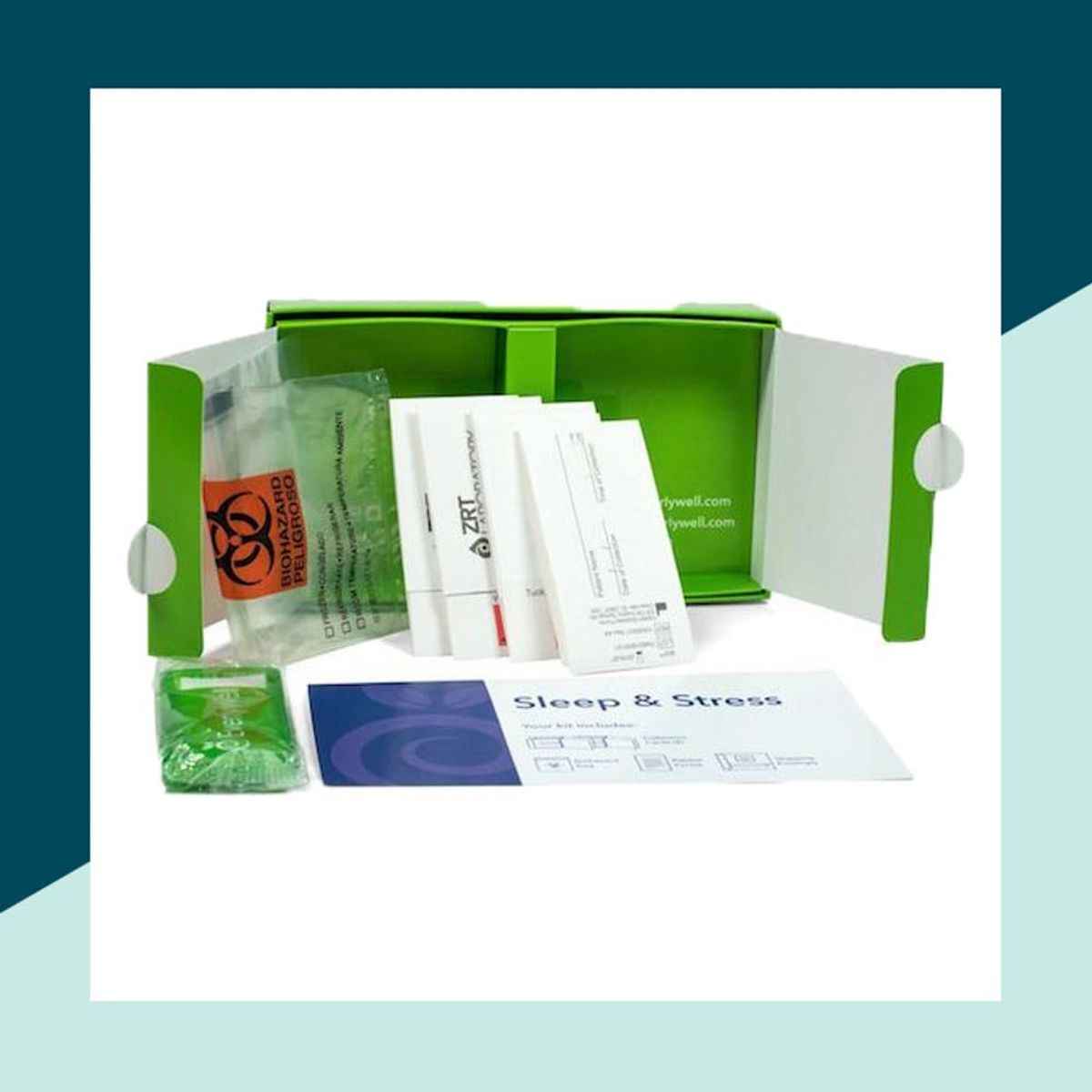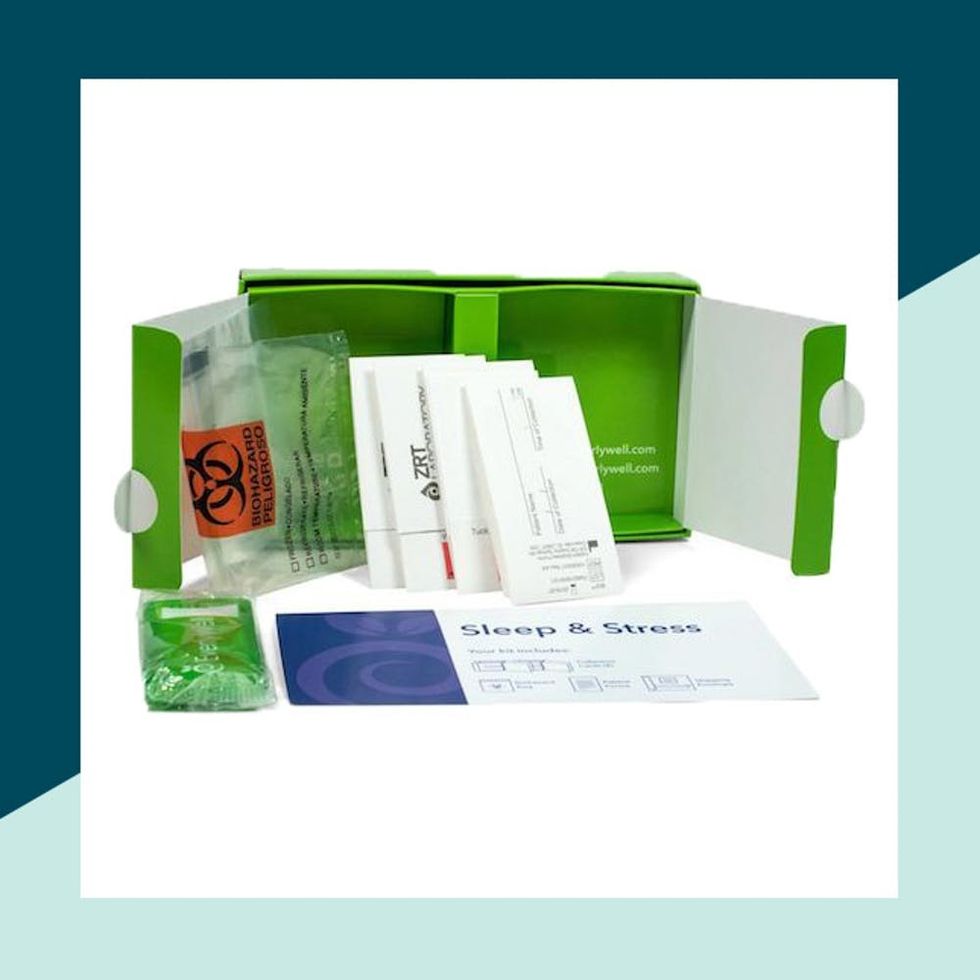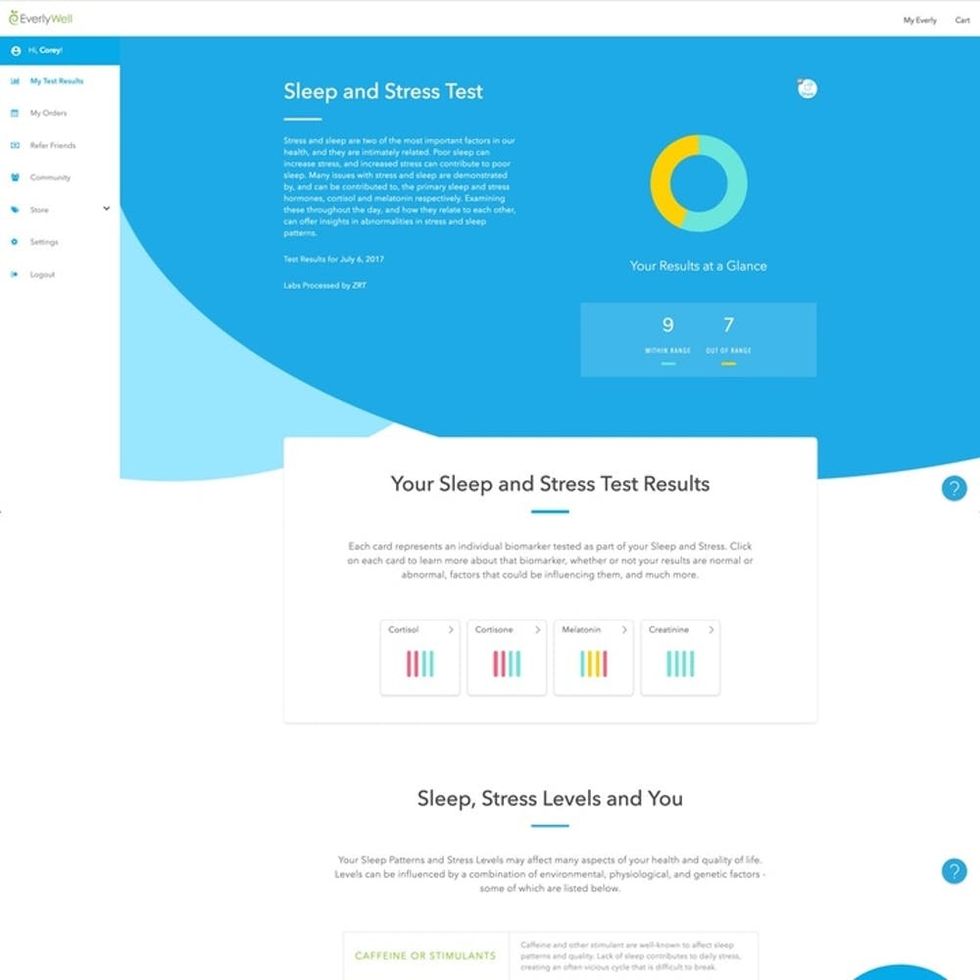This Handy Kit Will Help You Solve Your Sleep and Stress Woes

We’ve all been there; there are just some days you can barely open your eyes, let alone get out of bed. No matter how many cups of coffee you have, you can’t seem to shake that feeling of lethargy. We’ve also had those OTHER days, full of constant, nail-biting anxiety, when you can’t get a thing done for worry.
With more than a third of Americans getting less than seven hours of sleep in a 24 hour period, according to a 2014 CDC report — and 78 percent experiencing at least one symptom caused by stress in 2015 as reported by the American Psychological Association — we’re certainly not alone. Both afflictions are everyday problems for millions, acting as potential causeways for even bigger issues down the line, including heart problems, diabetes, and more. (Gulp).

So what’s a guy or gal to do? Digital startup EverlyWell, which lets you administer health labs at home, has you covered. The company’s Sleep and Stress Test ($249) is just the thing to help you get a handle on all your tired and worrisome woes.
It works by measuring three hormones — cortisol, cortisone, and melatonin— against creatine, a measure of kidney function, in urine samples you collect throughout the day and send in to the company’s lab. From there, the lab will tell you whether your internal levels are normal, elevated, or low in about five business days, all in an easy-to-read and understand format.

Though the test is not diagnostic, it can also help indicate to your physician if your sleepiness is the result of something larger at work, like an adrenal tumor, or Cushing syndrome, though these are relatively rare conditions. Barring these kinds of medical conditions, EverlyWell offers specific lifestyle recommendations based on your results to help you gain control of the issues at hand. As the company’s medical director, Dr. Marra Francis, explains, while most sleep issues are caused by external factors (i.e., staying up too late when you’re binging Netflix), there are plenty of behavioral changes you can make to minimize the damage done to your internal hormones.
“You need what’s called good sleep hygiene,” Francis tells us. That means using your bed for sleep only, not working from bed, and not sleeping with the TV or lights on. “Light stimulus is a big deal,” she says. “It will affect your melatonin.” Good sleep hygiene also means being more mindful of what we’re putting in our bodies as bedtime draws near. While drinking coffee before sleep might seem like an obvious don’t, eating dessert or satiating your sweet tooth with chocolate is also a no-no. “Soda for dinner is a terrible idea,” she said. And reaching for the wine isn’t much better. “[You] fall asleep, but you don’t stay asleep,” she explains.
Alternately, high cortisol (AKA the hormone that helps keeps your energy regulated throughout the day), or cortisone levels might indicate that you need to de-stress. “Cortisol and cortisone [are] direct products of the adrenal glands,” Francis tells us. “If you are stressed a lot, [your] body is releasing cortisol and cortisone all the time… [and the] adrenal glands only make so much to refill your stores.” That means you won’t have the cortisol there when you really need it for energy, a phenomenon known as a negative feedback loop.
Also affecting your cortisol levels are things such as nighttime shift work. Normally, the hormone fluctuates throughout the day, remaining low in the evening with bursts of activity in the morning. Changing up your hours means disrupting that rhythm, which consequently throws off your sleep cycle. “[Shift workers] have to understand their daytime is their nighttime,” Francis points out. In other words, if you’re working at night, in order to keep your body functioning in tip-top shape, you need to use your daytime hours for sleep.
Francis says that while your test results will likely require a willingness to change your bad habits, making adjustments to solve your sleep problems naturally is the best solution.
View this post on InstagramOur idea of a perfect Sunday😊 Who else isn't ready for the weekend to end? ✋🏼
A post shared by EverlyWell (@everly_well) on
And if THAT’s not working, you won’t have taken the test for naught. You can print your lab results to bring to your physician, allowing them to rule out certain conditions without further testing or time wasted. “We’re doing this to try to allow [the] customer to have some basic information about things that may be bothering them with their health [and] bridge with customers and doctors,” Francis says.
What’s more, she’s always on hand to help if you have questions or concerns about your levels and/or recommendations. Through a closed Facebook group for customers, she can answer any specific questions you might have. “It doesn’t end when you get your results,” she assures.
Sign us up!
Would you try this innovative service? Sound off over Twitter @BritandCo.



















